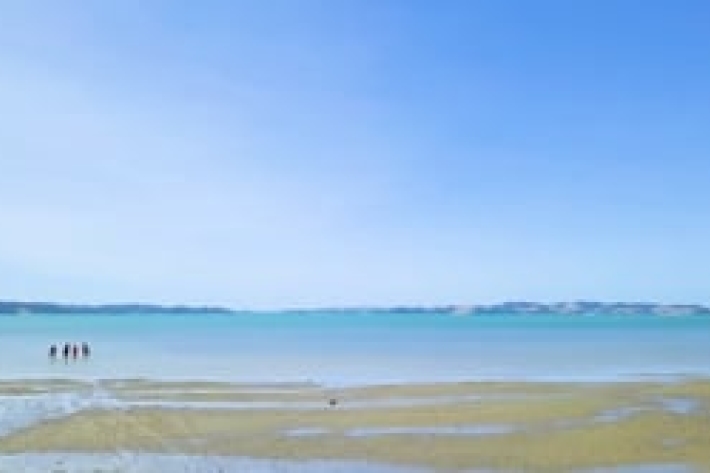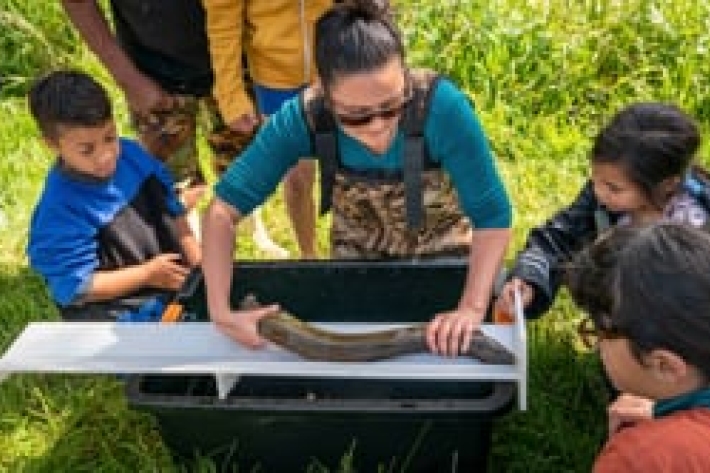-

CKS2020 - Developing tools and frameworks
This programme developed approaches to enable the recognition and prioritisation of cultural keystone species (CKS) in co-management, restoration and monitoring to help sustain the social, economic and ecological health and wellbeing of Aotearoa-New Zealand’s freshwater ecosystems. -
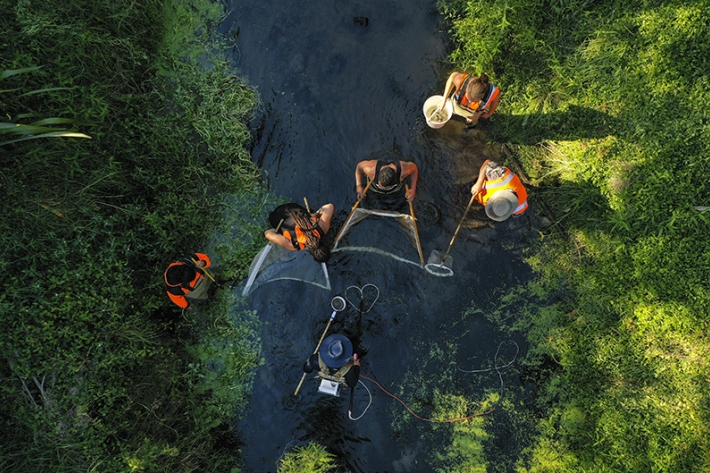
CKS2020 - Protecting our taonga together
Research projects within the Cultural Keystone Species programme where Mana Whenua undertake the fundamental research required to inform their unique responsibilities as kaitiaki. -
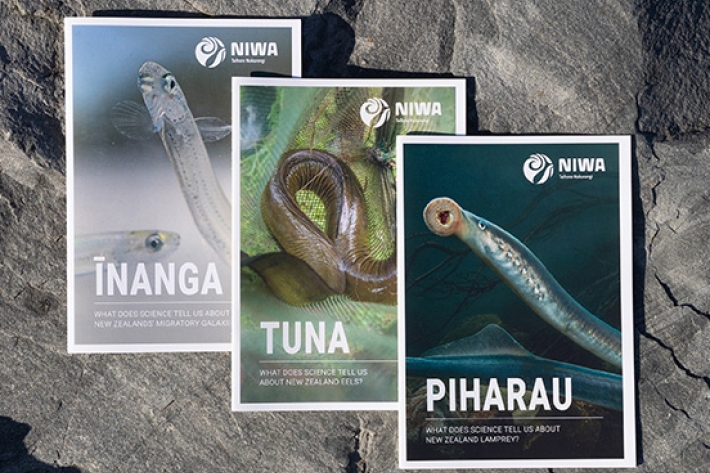
CKS2020 - Communicating state and trends
New ways to communicate the state and trends of taonga populations. -

Report: Trends analysis for selected indicators of Waikato River health and wellbeing 2010-2019
ServiceReport: Trends analysis for selected indicators of Waikato River health and wellbeing 2010-2019 -
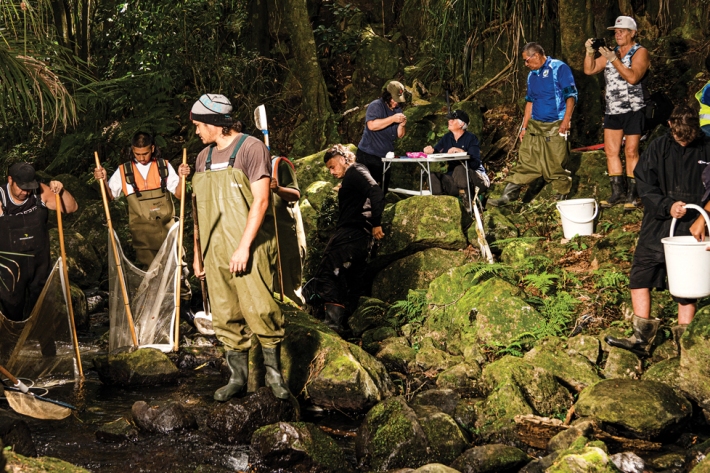
Protecting our taonga together
Feature story04 August 2021Alex Fear looks at the Cultural Keystones Species research programme, a research partnership that grew out of the vision of a Ngāti Hau kaumatua. -
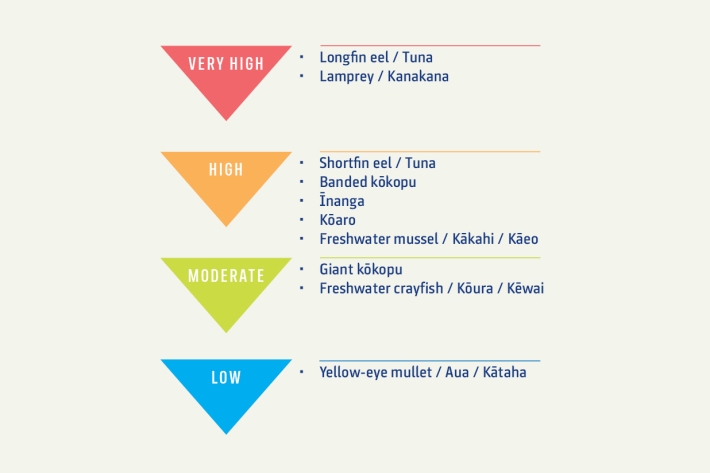
Freshwater species show vulnerability to climate change
Media release15 September 2020A new study has identified seven freshwater species native to Aotearoa-New Zealand that will likely be highly or very highly vulnerable to climate change. -
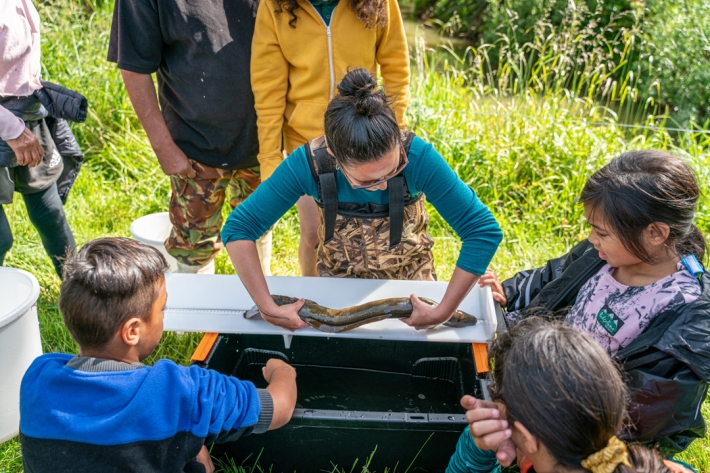
Maniapoto Cultural Assessment Framework
Research ProjectTe Nehenehenui (previously Maniapoto Māori Trust board) and NIWA are working collaboratively to support Ngāti Maniapoto whānau to reconnect with and participate in the assessment of their freshwater according to their values. -

Building pathways
Feature story28 July 2020It has been a whirlwind first six months for Ngāpera Keegan and Tekiteora Rolleston-Gabel, the first two young researchers in NIWA’s newly established Māori Graduate Internship Programme. -
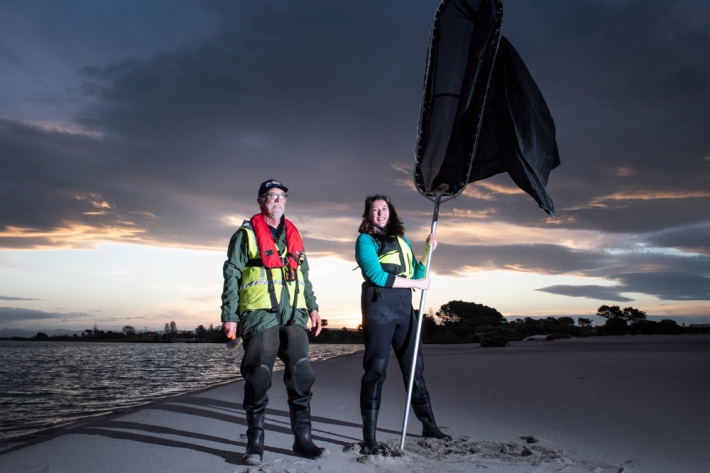
Unlocking the mysterious marine life of eels
Feature story01 February 2020Tiny, translucent eels may hold the answers to one of the fish world’s great mysteries. Zen Gregor investigates. -
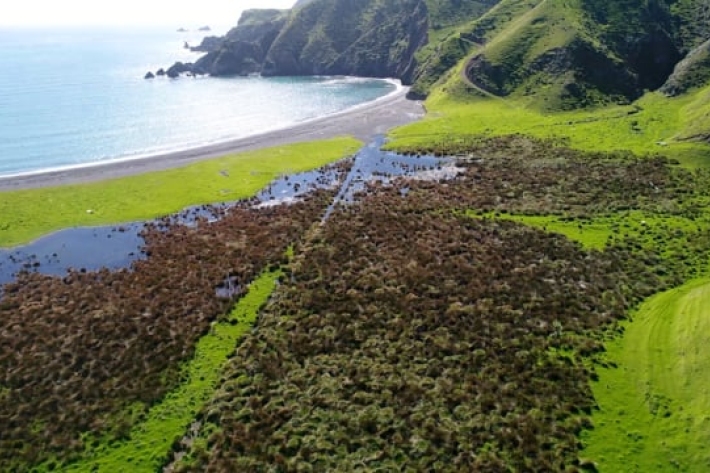
Tracing tsunamis through history
Weaving whakapapa and science together to trace tsunami through history.

